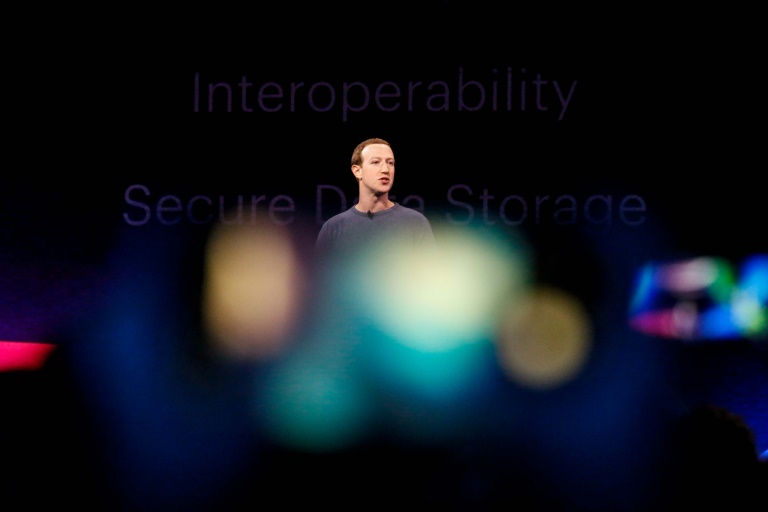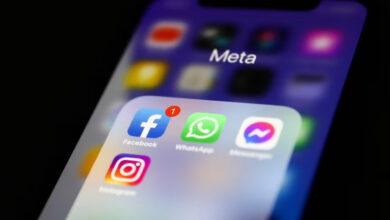
Facebook chief Mark Zuckerberg on Thursday rejected the idea of breaking up the social media giant as off-target, saying it could hamper the fight against deceit and harmful online content.
The Facebook co-founder’s defense of the leading social network came as it reported it recently disabled billions of bogus accounts set up by “bad actors” and that five percent of active accounts are likely fakes.
Facebook and its family of apps including Instagram, Messenger, and WhatsApp face competition around the world from rivals such as Twitter, TikTok, YouTube, Snapchat and others in a “competitive and dynamic environment,” Zuckerberg said.
The company does not rule the digital advertising market, which is topped by Google, he noted.
“I think arguments that we are in some sort of dominant position there might be a little stretched,” Zuckerberg said on a conference call about its latest content policy enforcement report.
“The question is, what problems are you trying to solve?”
He argued that breaking up the company might mean fewer resources to curb harmful online content and election interference and improve privacy and the portability of personal data.
“Those are the most important social issues right now, and I don’t think breaking up the company is going to address those,” Zuckerberg said.
“As a matter of fact, I think it is going to make it harder.”
Facebook’s success has enabled it to invest heavily in artificial intelligence and workers to watch for rule-breaking content and activity at the social network, according to Zuckerberg.
“The degree to which the success of this company has allowed us to fund these efforts for safety is massive,” Zuckerberg said.
“We are able to do things that are not possible for other folks to do.”
Facebook announced separately it is creating an independent board to act as a final court of appeals or sorts for disputes about content taken down at the social network.
Decisions of the board will be binding, with Facebook promising to abide by outcomes.
Zuckerberg referred to the independent advisory board and said he cared deeply about people’s freedom of expression when asked about the White House setting up a website to collect input from people who feel they have been unfairly censored on social media.
Spammer onslaught
Facebook disabled 2.19 billion accounts in the first quarter of this year, nearly double the number of accounts nixed in the prior three-month period, according to vice president of integrity Guy Rosen.
“The amount of accounts we took action on increased due to automated attacks by bad actors who attempt to create large volumes of accounts at one time,” Rosen said.
Facebook disabled most of the accounts as automated imposters were trying to establish them or shortly after they were made, according to Rosen.
The bulk of the fake accounts were the work spammers using automated systems, and with an apparent end-goal of making money, Facebook executives said.
The leading social network, meanwhile, estimated that five percent of its 2.4 billion monthly active users were fake accounts yet to be uncovered.
The California-based company also said it has made progress in battling hate speech, automatically detecting 65 percent of the content removed instead of needing to wait for users to report it.
Facebook took down four million posts considered hate speech in the first quarter of this year and continues to invest in technology to better detect such material in various languages and regions, according to Rosen.
The social network also said that it has booted more than 200 white supremacist organizations.
Facebook reported progress in efforts to prevent the social network from being used for illegal sales of drugs or guns.
It “took action” in the quarter against 900,000 pieces of content related to drug sales, of which some 83 percent was detected by software.




